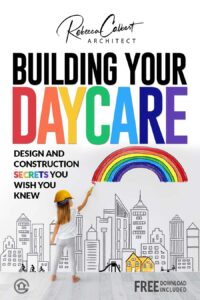Imagine you’re about to embark on one of the most impactful journeys of your life – opening a childcare facility. One of the primary decisions you’ll make in this process is selecting the ideal location for your building. This article will offer you a comprehensive guide on how to make the best choice for your prospective childcare business, considering factors such as safety, community needs, and regulatory compliance. Brace yourself as we explore the intricate world of location scouting for childcare establishments.
Understanding The Importance of Location
When you’re trying to start a successful childcare business, you’ll quickly realize that one of your most critical decisions revolves around location. Often overlooked in the initial planning stages, location plays a significant role in the growth, functionality, and success of your childcare center.
Starting a successful childcare business
Childcare businesses can be incredibly rewarding, but to attain success requires careful planning. You’re not just starting a business; you’re creating a safe, nurturing space for children to learn, grow, and develop. Your business plan should be comprehensive and consider factors such as your business model, target market, financials, and, of course, your location.
How location affects operation
The location of your childcare center can significantly affect its daily operations. For instance, a location with heavy traffic can lead to noise and safety issues and make drop-offs and pick-ups problematic for parents. Conversely, a peaceful environment that is easily accessible and in close proximity to families can significantly enhance your center’s operations and appeal.
Importance of a strategic location
A strategic location is more than just a physical address. It’s about accessibility, safety, compatibility with your business model, space for future growth, and being in an area that has the resources and amenities you, your staff, and the children will need.
Childcare Center Location and Accessibility
When thinking about where your childcare center should be, consider factors like how close it is to residential areas, transportation and commute convenience for parents, and parking availability and traffic patterns.
Proximity to residential areas
Parents appreciate the convenience of a childcare center that’s close to home. Being in or near residential areas also sends a comforting message about being part of the community. This proximity allows parents to easily drop off and pick up their kids, saving them time and reducing the stress of commuting.
Transportation and commute convenience for parents
For parents who use public transportation, not having to go too far from their usual route is a significant factor. Consider having your childcare center near bus or train lines. Even for those who drive, easy access to highways or main roads can make your center more appealing.
Parking availability and traffic pattern
Have you ever tried to navigate a busy parking lot with a toddler in tow? It’s not fun. Adequate, well-planned parking is a must for any childcare center. Additionally, consider the traffic patterns around your location – if the roads are usually congested, that could pose a problem for families attempting to drop-off or pick-up during peak hours.
Safety Considerations for Childcare Location
Safety is paramount for any childcare provider, and the location you choose plays a significant role in ensuring it.
Physical safety of the building
The physical condition and safety features of your building are critical. This includes fire and emergency exits, properly functioning plumbing and electrical systems, and childproof features to prevent accidents.
Emergency services access
Your childcare center needs to be easily accessible for emergency services. Proximity to the nearest hospital, fire station, and police station is worth noting. Also, consider accessibility features like wide roads and clear pathways to entry points.
Environmental hazards or concerns
Knowing about any potential environmental hazards in the area is crucial. This could include nearby factories emitting harmful substances, flood zones, or areas prone to other natural disasters.
Childcare Facility Costs and Zoning Laws
Location impacts not only the operations and safety of your center but also financial and legal factors.
Considerations for buying, leasing or building
When securing a location for your daycare, you have three main options: buying, leasing, or building. Each comes with its pros, cons, and costs. Make sure you’ve considered all possibilities and sought professional advice before deciding.
Understanding zoning laws and regulations
Every location will come with zoning laws and regulations tied to operating a childcare center. Understanding these laws and ensuring your chosen location complies with them is key to avoiding potential legal issues down the line.
Potential hidden costs related to the location
Beyond the upfront cost of leasing or buying a property, there are other potential costs associated with a location. These might include renovation costs for complying with childcare safety standards or additional transportation costs if your location is remote.
Size and Space Requirements for Childcare Building
Operating a childcare center is not only about finding a building but about having enough space for children to play, learn, eat and rest comfortably and safely.
Determining required indoor space
The indoor space of your center needs to be sufficient for the number of kids you plan to care for. This includes not only play areas but also quiet spaces for nap times, eating areas, and places for different activities.
Outdoor space requirements
outdoor space provides an arena for physical activities and interaction with nature, key aspects of child development. Your potential location should either have outdoor space or be proximate to parks or playgrounds.
Expansion possibilities and limitations
As your business grows, you may need to expand your physical space. When choosing a location, consider whether there is potential for expansion or if there are restrictions that may limit growth.
Assessing Neighborhood Impact
Your childcare center will be a part of the community, and as such, it’s important to consider how it may affect and be affected by its surroundings.
Considering community support and opposition
Community support can hugely benefit your business. However, it’s also essential to anticipate any potential opposition or concerns from neighbors, and to address these proactively and considerately.
Analyzing prospective neighborhood vibe and aesthetic
Examine the current vibe and aesthetic of the neighborhood. A neighborhood that is clean, well-kept, and has other family-friendly businesses may be more attractive to parents.
How your center may affect nearby businesses
While your childcare center can inject life and activity into a neighborhood, it’s also essential to understand how increased traffic, noise, or other factors might impact nearby businesses or residences.
Consideration of Future Growth
While it’s important to be fully prepared for your grand opening, don’t forget to look ahead.
Planning for future expansion
Consider how your chosen location will suit not only your current needs but also your expected growth. This might affect decisions about the size of the property you choose, zoning regulations, and community relationships.
Business growth potential based on location
In a dynamic marketplace, your potential for business growth can greatly depend on your location – whether there is a rising number of young families moving to the area or plans for residential development can create opportunities for future growth.
Impact of neighborhood growth
Similarly, the growth (or decline) of the neighborhood can have an impact on your childcare center. Staying informed of local trends and development plans can help you anticipate and adapt to changes.
Local Competition Analysis
Understanding your competition is critical in any business – and childcare is no exception.
Scope of nearby competing childcare centers
Take the time to understand other childcare centers in your area. This includes the services, strengths, and weaknesses they may have.
Understanding parents’ other options
Beyond just childcare centers, think about what other options parents may have. These can be nannies, au pairs, or even flexible working arrangements.
Strategic positioning based on competition
Use the knowledge of your competition to strategically position your childcare center. This could influence your marketing, pricing, services, curriculum, and overall value proposition.
Social Infrastructure and Amenities
Aim to locate your childcare center near amenities that can enhance your center’s appeal or provide vital resources.
Proximity to parks, hospitals, and libraries
Being close to parks allows children to enjoy play and activities in an open space. Likewise, proximity to hospitals ensures timely medical care in emergencies, while libraries provide learning resources.
Availability of nearby workshops or activity centers
Nearby workshops or activity centers can provide opportunities for field trips or collaborations on special events or programs.
Proximity to schools
If your center caters to school-aged children, being near schools can provide a significant convenience to parents. This can cut down on their time spent managing separate drop-off and pick-up locations.
Incorporating Parent and Staff Feedback in your Location Selection
To truly make your childcare center a success, actively engage those who will use it or work there on a daily basis.
Active soliciting of staff and parent input
Don’t hesitate to seek input from prospective staff and parents in your location decision. Their perspectives can help you understand needs and concerns that you may not have considered.
Understanding commuting concerns of staff
Just as parents appreciate convenient locations, so do staff. Understanding their commuting concerns and preferences can help you pick a location that will be viable for them and, in turn, help with staff retention.
Understanding drop-off and pick-up concerns of parents
Parents will be dropping off and picking up their kids every day. Understand their needs and concerns to ensure the location you pick makes this daily routine as stress-free as possible.
In conclusion, choosing the right location for your childcare center involves juggling a variety of considerations. But, with careful planning and an eye for detail, you can find the perfect spot for your childcare center – a space where children thrive, staff are happy to work, and parents feel secure and valued.


